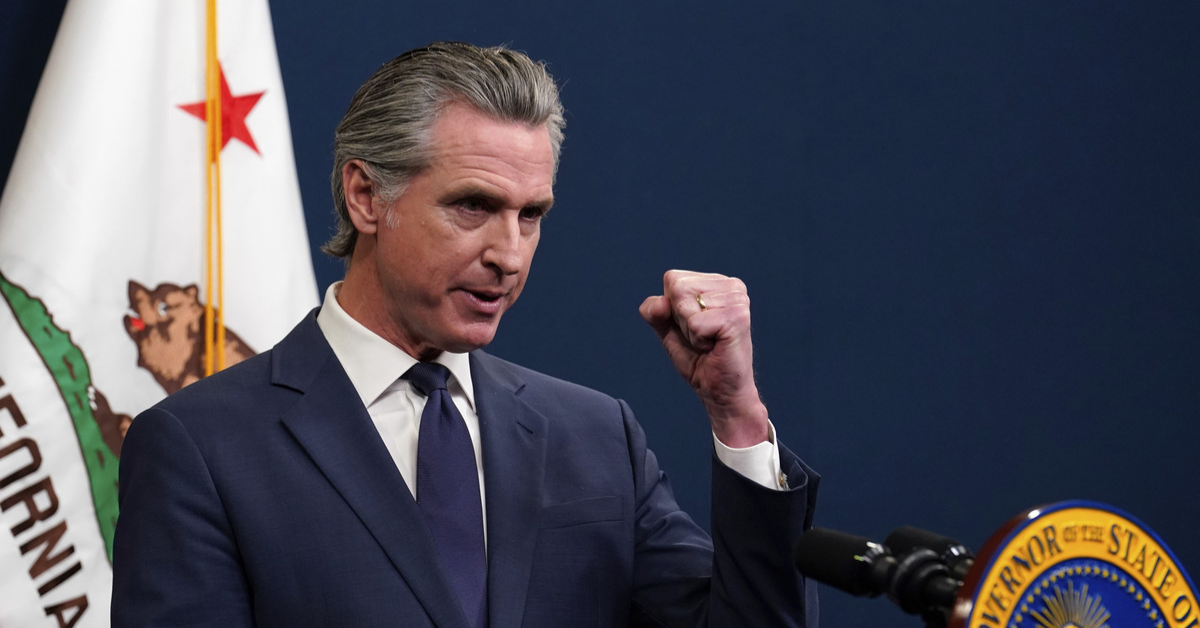One question recently raised was whether California Governor Gavin Newsom could stop tax payments to the U.S. government. The debate emerged amid California’s ongoing fiscal struggles, especially in light of the state’s large budget deficits and its push for greater independence in managing its finances.
However, while Newsom has been vocal about California’s rights and the state’s ability to challenge federal policies, the reality is that blocking tax payments to the U.S. government is not a feasible option. The reasons behind this are rooted in the complex framework of federalism and the Constitution, which assigns certain powers exclusively to the federal government.
Despite the argument that California contributes more to the U.S. government than it receives, any action to block tax payments could lead to significant consequences. First and foremost, such a move would break the longstanding relationship between states and the federal government, which has been in place since the country’s founding.
States are required to pay taxes to fund federal programs, from defense to infrastructure and social security. Withholding these funds would disrupt essential services that benefit not only California residents but the entire nation.
Additionally, California, as one of the largest contributors to federal taxes, often finds itself at the center of debates over how tax dollars are distributed. While it’s true that California pays more than it receives in federal spending, this imbalance is not unique. Many other states in the union also pay more in federal taxes than they receive in federal benefits. However, the idea of withholding payments is not just a fiscal issue; it’s a political maneuver that would have far-reaching implications for governance.
The governor’s position on this matter has sparked heated discussions about the fairness of federal tax distribution. Some argue that California’s taxpayers are entitled to more from the federal government due to the state’s significant economic contributions.
However, others contend that the system of federal tax distribution is designed to benefit the nation as a whole, not individual states. The central principle of federalism means that the federal government’s policies must be applied across all states, regardless of their individual contributions. This system ensures that every state has a stake in the country’s overall success, even if some contribute more than others.
However, the call for California to withhold taxes goes beyond fiscal concerns and taps into the ongoing frustration with federal policies that many Californians feel are out of touch with the state’s values and priorities.
From healthcare to climate change, California has often found itself at odds with federal decisions, which has fueled a sense of frustration among its residents. This sentiment has been particularly pronounced under the current administration, which has made several policy decisions that California leaders argue undermine the state’s progress on issues such as environmental protection and healthcare access.
Nevertheless, the concept of withholding federal tax payments would be more symbolic than practical. It is unlikely that any state, especially one as large and economically significant as California, could sustain such a stance for long without facing severe economic consequences.
The state would risk jeopardizing its financial stability, federal funding for critical programs, and the very relationship that allows it to participate in national policymaking. More importantly, it would open a Pandora’s box of legal and constitutional challenges that would likely end in a swift resolution that reaffirms the federal government’s authority over state tax obligations.
California’s situation is a reflection of broader debates across the country about how federalism should work in practice. With the increasing political polarization between red and blue states, many are questioning whether the current system truly serves the best interests of all Americans.
Some advocate for a more decentralized system where states have greater autonomy over their own resources, while others argue for a more centralized approach that ensures uniformity in policy implementation across the country. The debate continues to evolve, with each side presenting compelling arguments about the future of the union.
Despite the frustrations expressed by some Californian leaders, the reality remains that states like California must comply with federal tax laws, even if they feel they’re not receiving a fair return on their contributions. While it’s unlikely that Newsom, or any other governor, could block tax payments to the federal government without severe repercussions, it’s clear that the conversation around federalism, tax fairness, and state autonomy will continue to shape the political landscape for years to come.
In conclusion, although California’s leaders, including Governor Newsom, may voice strong opposition to federal policies they deem unfair, blocking tax payments to the federal government is simply not a practical or legal course of action.
The larger issue at hand is the growing tension between state rights and federal authority. As California and other states continue to push for more autonomy, these debates will undoubtedly persist, but the solution will not come in the form of withholding tax payments. Instead, it will require continued dialogue and reform within the existing framework of federalism, balancing state needs with national priorities.








